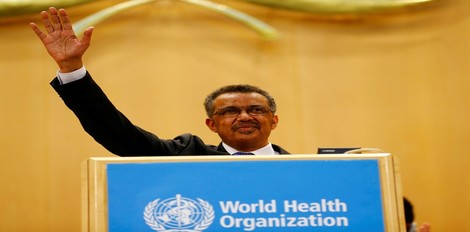Your podcast discovery platform
Curious minds select the most fascinating podcasts from around the world. Discover hand-piqd audio recommendations on your favorite topics.

piqer for: Global finds
Ciku Kimeria is a Kenyan author "Of goats and poisoned oranges" - (https://www.amazon.com/goats-poisoned-oranges-Ciku-Kimeria-ebook/dp/B00HBBWPI6), development consultant, adventurer and travel blogger (www.thekenyanexplorer.com). She writes both fiction and non-fiction focusing on African stories that need telling. She has worked on diverse pieces for various international and local publications including Quartz, Ozy, The East African etc. She has travelled to 45 countries – 16 of them in Africa. 153 countries to go and 63 territories!
"Of goats and poisoned oranges" has been extremely well received in Kenya and beyond. It tells the story of a Kenyan middle aged power couple and their complicated marriage. The novel explores issues of greed, revenge, betrayal and murder. It runs from the 1960s to 2013. It has been described as “Wicked, funny, poignant, wacky, human, a big ball of fun and danger”, “A unique and captivating book”, “Fun and intriguing”, “Impossible to put down once you start reading.”
She recently moved to Dakar, Senegal from Kenya to work on her second novel. She also works at as the Africa Communication Manager at a leading global strategy consulting firm.
She holds a B.S. in Management Science from MIT with minors in Urban Planning and International development studies.
The World Health Organization's (WHO) New Champion For Inclusive Global Health Priorities
WHO has a new Director General and this is big news for various reasons. First, this is WHO's first African leader. This is also the first time that the WHO assembly voted for this role. From the number of votes cast in his favor, it's quite clear that the entire Global South voted for him. His landslide victory comes just in time and is a clear reaction to the recent sentiments on the WHO as an organization that has been ineffective in dealing with challenges in low- and middle-income countries.
Dr Tedros Ghebreyesus has his work cut out for him. He is taking over an organization that is significantly underfunded—increasingly having to rely on private donors as richer wealthier states cut their funding to it. He who pays the piper calls the tune. As such, WHO is also constrained by donor priorities given its heavy reliance on a few large donors. As non-communicable diseases (e.g. diabetes, hypertension, cancer, heart attacks and strokes) have grown to become the leading cause of morbidity and mortality worldwide, funding for them has also decreased. Conflicts of interests, especially among wealthier states, has also led to opposition against some WHO proposals to address the rise of non-communicable diseases. As an example, there has been opposition against putting in place food regulations to address the unhealthy foods getting to developing countries as these affect the business interests of prominent investors in those countries.
Having spearheaded major reforms in Ethiopia as the country's former Minister of Health, Dr Tedros Ghebreyesus is well equipped to deal with the challenge of strengthening health systems in low- and middle-income countries. The recent Zika breakouts in Brazil and the Ebola epidemic in West Africa in 2014 revealed weaknesses both at WHO and at the national level.
This article expounds on all the opportunities and challenges that lie ahead for WHO with this power shift.
Stay up to date – with a newsletter from your channel on Global finds.
